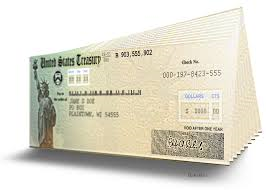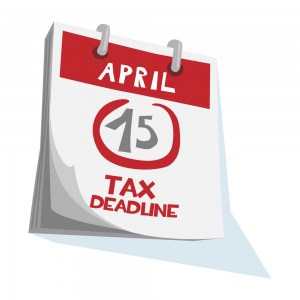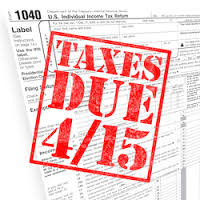It is tax refund time and most taxpayers already have a plan for their tax refund. They will save it, invest it, spend it or maybe do a little of each. However, some taxpayers will file their tax return and never receive a refund. This is due to the fact that the IRS can keep a taxpayer’s refund to cover certain types of debt, some of which are discussed below.
A Back Tax Balance with the IRS: If a taxpayer has a back tax balance with the IRS (even if they are currently enrolled in a payment plan), the agency will keep either all or part of that individual’s tax refund and credit it toward payment of their back tax balance. Although the delinquent taxpayer’s refund is either reduced or eliminated altogether for that tax year, they can at least take comfort in the fact that the IRS is helping them pay their back tax bill. It is important to keep in mind that federal income taxes and state income taxes are connected. Therefore, if an individual has a past due tax bill with the state they live in (or have lived in), they can expect that the IRS will take some or all of their refund to cover any back tax amount owed to the state.
Delinquent Child Support: If an individual is behind on court ordered child support payments, that person’s state of residence is authorized to take any one of a variety of actions. The state can garnish their wages, seize their property or keep a portion or all of their tax refund. These actions are all designed to retrieve the money that is owed in back child support.
Outstanding Student Loan Payments: If an individual falls behind on student loan payments, the federal government can take some or all of their refund to repay a portion of their student loan. This action will normally occur only if a person’s student loan account is more than ninety (90) days past due. As with back tax balances with the IRS and overdue child support, any amount of a tax refund that is withheld will be applied to the existing student loan debt.
Overdue Obamacare Payments: This is obviously a new reason as to why tax refunds can be held by the government. The Affordable Care Act has associated with it two instances where the government can withhold a person’s tax refund. The first instance occurs when an individual has not purchased health insurance coverage for the current year. In this case, the government uses the taxpayer’s refund as payment for their required health insurance coverage. The second instance where a tax refund can be withheld occurs when a subsidy has been received to offset the cost of a health insurance policy. The subsidy is considered to be a tax credit and, just like any other tax credit, it is expected to be repaid. If a taxpayer has received such a tax credit and has not repaid it, the government has several options. They can put a lien on the taxpayer’s property, garnish their wages or keep some or all of their tax refund.
|
If you have tax questions or a tax debt you are unable to pay, our tax settlement professionals are happy to discuss your tax resolution options free of charge. For more information about our services, visit us today at www.professionaltaxresolution.com or call us at 877.889.6527. With over 16 years in the business of resolving tax debt, we have a thorough understanding of tax law together with the experience to know which settlement option will be the best fit for your specific set of circumstances. |




